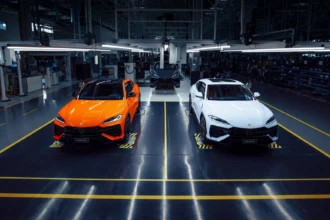In a surprising step toward a sustainable future, Saudi Arabia has declared its ambition to become a leading hub for electric vehicle (EV) battery production. The move marks a significant pivot for the world’s top oil producer, underscoring its commitment to diversifying its economy and establishing a robust domestic automotive industry.
Khalid Al-Falih, Saudi Arabia‘s minister of investment, spoke to Bloomberg Television about the kingdom’s ambitions. He emphasized the importance of developing a comprehensive supply chain, with EV batteries as a central component. The initiative is part of Crown Prince Mohammed bin Salman’s broader vision to reduce the country’s dependence on oil.
The seven-year strategy is a transformative program aimed at diversifying Saudi Arabia’s economy. Despite the kingdom’s historic reliance on oil and related industries such as petrochemicals and plastics, which account for more than 90% of its exports, there is a new focus on manufacturing. This shift includes harnessing renewable energy and mining key minerals for battery chemicals, with the goal of producing 500,000 electric vehicles by 2030.
You may like: Citroën ë-C3, The Europe’s New Affordable Electric City Car
Saudi Arabia’s journey toward automotive self-sufficiency includes cultivating a network of global suppliers. In a recent development, the Saudi Wealth Fund signed an agreement with Pirelli SpA to establish a tire plant worth more than $550 million. This facility is expected to support several companies, including electric vehicle manufacturer Lucid Group Inc. and Hyundai Motors Co. that are setting up operations on Saudi Arabia’s west coast.
To support this growth, Saudi Arabia has implemented policies to attract foreign talent and investment. One notable policy requires international companies to establish their regional headquarters in Saudi Arabia by January 2024 in order to continue doing business with government entities. The move aims to position Saudi Arabia as the hub for Middle East operations for at least 160 global companies by the end of the year.
Al-Falih revealed that more than 180 licenses have been issued to companies with incentives to establish regional headquarters. This rapid progress indicates a growing interest in Saudi Arabia as a key investment destination.
Keep up with the latest trends in men’s fashion and lifestyle, follow us on Essential Homme sur Google News, Whatsapp, en RSS ou sur Flipboard
In light of recent changes in the way foreign direct investment (FDI) is calculated, Saudi Arabia’s $1.1 trillion economy has seen a dramatic increase in FDI estimates for the previous year. The revised estimate is $33 billion, significantly higher than the previous $8 billion. This recalibration is in line with International Monetary Fund (IMF) accounting standards and provides a more accurate picture of international investment in the Kingdom.
Despite regional tensions and global economic uncertainties, Saudi Arabia remains optimistic about maintaining its investment momentum. Al-Falih confidently stated that Saudi Arabia “ticks all the boxes” and offers a compelling investment destination amid fluctuating global conditions.
By accelerating its journey into the EV and renewable energy sectors, Saudi Arabia is not only diversifying its economy, but also positioning itself as a pioneer in sustainable automotive development. This bold transition underscores the Kingdom’s commitment to innovation and its vision for a greener, more diversified economic future.
















